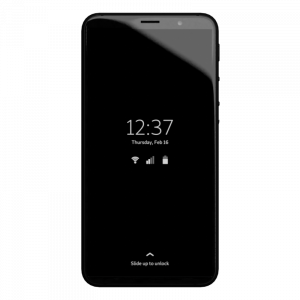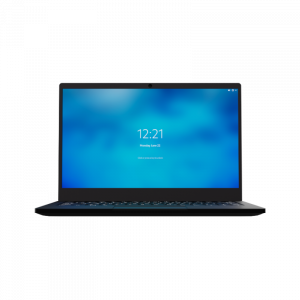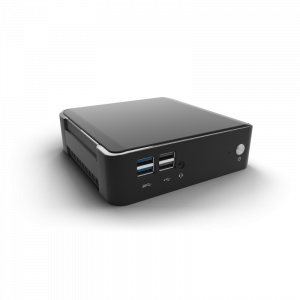You Should Be In Control of Your Tech
Purism
Latest posts by Purism (see all)
- A Quarter Century After Cyberselfish, Big Tech Proves Borsook Right - December 20, 2025
- PureOS Crimson Development Report: November 2025 - December 15, 2025
- Purism Liberty Phone Exists vs. Delayed T1 Phone - December 10, 2025
How much of the technology that you own is actually under your control? So much of the technology available for consumers today intentionally puts all control into the hands of the vendors, not the customer. What happens when vendors have control? They make technology decisions that run counter to the customer’s wishes, because the customer is powerless to do anything about it. The only way to ensure technology continues to work in your interest is for you to be in control, not the vendor. Having control over your technology requires hardware and software that’s designed for that purpose.
Who Holds the Remote Control?
This past week we saw two different tech stories that illustrate how tech companies abuse their control against customer wishes. First, timed alongside Data Privacy Week, LG announced a new initiative for advertisers to provide targeted ads to LG TV customers. I’ve mentioned before that companies are starting to mine even their paying customers for data, because there’s just so much money to be made by selling customer data. It should be obvious that LG customers don’t want extra ads shown on their screen, nor do they want their data captured and shared with advertisers. Despite this LG is emboldened to add these ads because they, not the customer, hold the remote control of these smart TVs.
Because these smart TVs must be connected to the Internet to function, vendors have started treating them similarly to always-on smartphones not just to mine data, but also to provide software updates over the Internet. Customers who may want to opt out of data collection or ads have only one option: don’t connect these TVs to the Internet. This means they not only can’t use the convenient smart TV streaming functions they may have bought the TV for to begin with, they also can’t get software updates to fix bugs.
Opt Out Doesn’t Apply to Google
Even when vendors provide you a way of opting out of data collection, they often exclude themselves from your decision. Google has a long history of collecting and selling personal data from its customers–it’s their primary business model–but there was still a sense left among some of its customers that they consented to this violation of their privacy, and could opt out. For instance, while it’s well-known that Android phones capture your location via location services, and that your location is one of the many factors Google uses for targeted advertising, you can also disable location services. With location services disabled, neither Google nor 3rd party applications are supposed to be able to track your location.
According to complaints filed by a number of states against Google this week, even when customers explicitly disabled location services, Google continued to collect their location data behind the scenes. This goes beyond just adding a feature a customer won’t like. In this case the customer explicitly requested they not be tracked, but because Google is ultimately in control of their phones, they simply ignored the opt out request.
How to Get Control
On the hardware front having control means hardware you can open and inspect and is designed for repairability. That hardware should ideally run firmware (as much as possible) that is free software so you can also inspect and update it. If the hardware provides security features, they should be designed to put you in control, not the vendor, including control of any keys. The hardware should not require the vendor’s signatures (and therefore their permission) to boot an operating system, but instead should let you boot into whatever operating system you prefer.
The operating system and the software it runs, should all be free software. Free software by its very nature puts you in full control. You have control because you can not only inspect the software to see what it does, you (or someone else in the community with software development knowledge) can change the software if it operates outside your interests.
You may have noticed that you don’t tend to have a lot of adware or spyware in the free software world. That’s because it’s difficult to hide spyware inside of code that anyone can inspect. Another reason is that if free software behaves in a way that runs counter to the user’s wishes (such as capturing and selling their data, or popping up unwanted ads), the user (or someone else in the community) could simply create a legitimate fork of the project with those objectionable bits removed.
Now that many technology companies have gotten a taste of how lucrative it can be to remove control from customers, it’s unlikely they will change tactics all on their own. It’s clear that the more control vendors have over technology, the more they operate in their own interest, and when that interest runs counter to their customers, the customers lose. If you want control over your technology, choose vendors and products that respect you, and that make your control and your freedom central to their design.
Purism Products and Availability Chart
| Model | Status | Lead Time | ||
|---|---|---|---|---|
 | Librem Key (Made in USA) | In Stock ($59+) | 10 business days | |
 | Liberty Phone (Made in USA Electronics) | In Stock ($1,999+) 4GB/128GB | 10 business days | |
 | Librem 5 | In Stock ($799+) 3GB/32GB | 10 business days | |
 | Librem 11 | In Stock ($999+) 8GB/1TB | 6+ weeks | |
 | Librem 14 | Out of stock | New Version in Development | |
 | Librem Mini | Out of stock | New Version in Development | |
 | Librem Server | In Stock ($2,999+) | 45 business days | |
 | Librem PQC Encryptor | Available Now, contact sales@puri.sm | 90 business days | |
 | Librem PQC Comms Server | Available Now, contact sales@puri.sm | 90 business days |
Recent Posts
Related Content
- A Quarter Century After Cyberselfish, Big Tech Proves Borsook Right
- Landfall: A Case Study in Commercial Spyware
- Consent On Everything?
- Code is Power!
- Purism Defends the Fourth Amendment in the Digital Age


